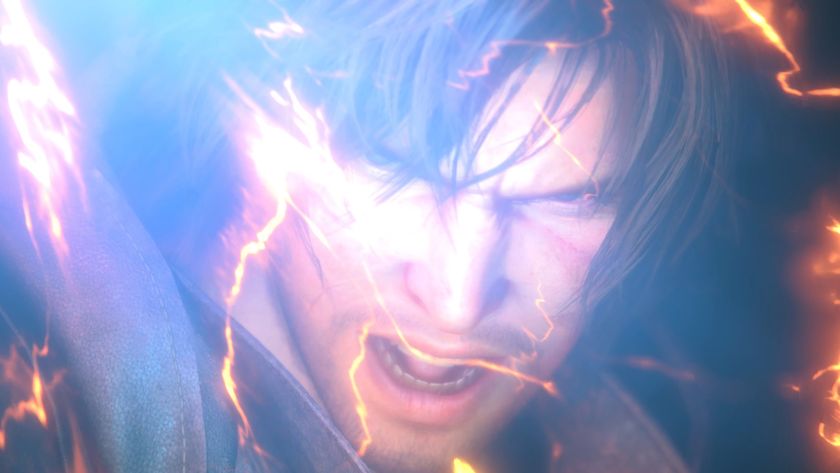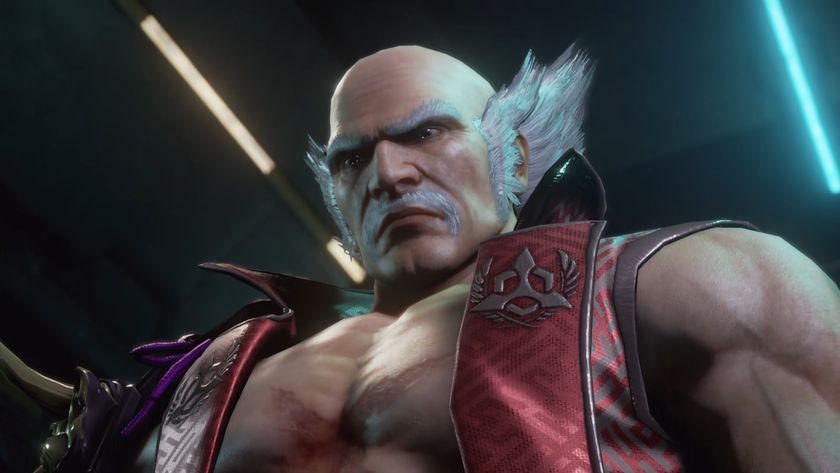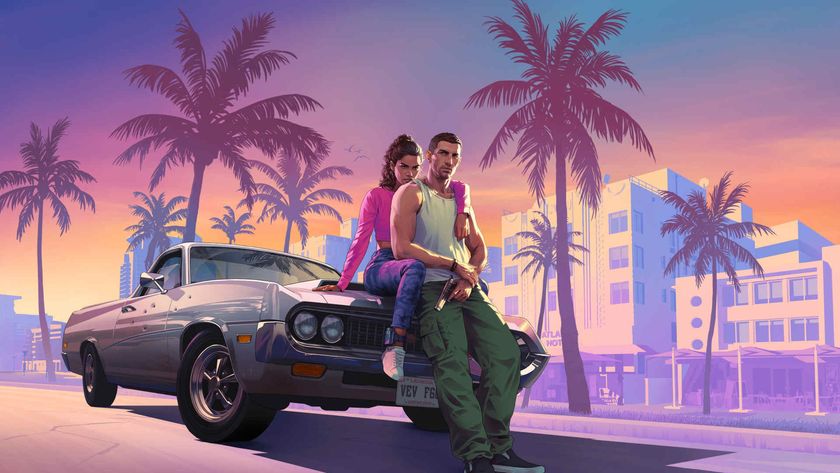How multicultural characters can make better games for everyone
Do you identify with white, black, asian, or hispanic? Kind of a weird question to ask someone, right? But it happens a lot. Diverse groups of people get dropped into these generalized categories all the time, and we're somehow expected to relate to them. And games do it, too. There are lots of different types of people out there, but most games still focus on the military shooter white guy protagonist, the black guy GTA gangster, and the asian guy that looks and fights like Bruce Lee. There's more to the world than these generic stereotypes, but for the majority of my gaming life experience, those few types of characters are the options I've been stuck with. Which one of those categories do I belong to? None, really. But there's good news. Developer Bandai Namco is giving largely unexplored cultures a chance to shine in the upcoming Tekken 7 roster, and one of them is definitely a character I can relate to.

What's getting me hyped about Tekken 7 (a series I don't usually play, but probably will now) is the addition of one of the first Filipino characters to enter the gaming space. I am a mixed race Filipino American and always considered the Filipino culture to be a big part of my life. I have Filipino friends, I cook Filipino food, and I watch WoWoWee (the Filipino equivalent to the Price is Right) with the old people in my family. Naturally, I gravitate toward Filipino people, and I would definitely enjoy playing games as Filipino characters. But the one place I never see Filipinos is in games - that's because there have only been about five obscure Filipino game characters in the history of ever.
So, when Bandai Namco announced it was bringing a Filipino character to Tekken 7, I was thrilled. Finally, we get some representation. Josie Rizal is Tekken 7's new fighter. Her admittedly skimpy outfit features the red, yellow, and blue of the Philippines' flag, and includes little touches to her costume highlighting the flag's prominent sun and stars. There's just enough to let you know she isn't just another generic asian combatant. And, as touchy as representing an entire nation in one character goes, there isn't anything over the top about her costume and her look doesn't play into any stereotypes of the Filipino culture. She could just as easily been short, dark skinned, and dressed as a nurse.
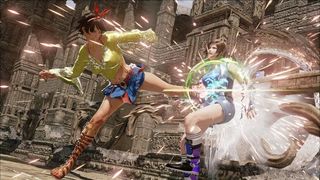
In the game, Josie uses eskrima and kickboxing in her fighting style - both popular martial arts in the Philippines. That information already makes Josie special because it reveals a little bit about the Filipino culture and the game exposes the entire world to those tidbits. Not every gamer is aware that the Philippines has its own unique forms of martial arts. Eskrima, for example, is a Filipino developed martial art that involves techniques that use and defend against short sticks or machetes whether you're armed with a weapon or using empty hand techniques. If you play Tekken 7, you experience that unique fighting style personally. For me, I know people that study that martial art (and even learned a little myself), so seeing it being used in a game, automatically draws me to it.
Having multicultural characters in games is like having another way to share cultures. Josie isn't the perfect representative of the Philippines and its people, but she's a start. There are some Filipinos that have issue with the way she looks, her costume not being traditional enough, or her not having an accent. But what does a Filipino look like or sound like, really? Those concerns are things that can be adjusted and addressed (if they even need to be). The real win for me is that there is a character in a game that's saying, "I'm Filipino. Check me out," in a medium that has had little to no Filipino representation in the past. Yes, cultural sensitivity can be improved, but that doesn't mean this isn't a step forward.
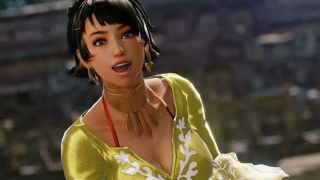
Adding characters from different cultures into games is definitely a good thing, and it's going to take time to get it right. I'm not saying that Mario should be Filipino or anything like that, but there is a wealth of ideas to pull from different cultures that could be considered in game design. In a fighting game like Tekken, when developers add new characters from different cultures, we get exposure to fighting styles that aren't just the overused karate, kung fu, boxing, judo, and miscellaneous martial arts we've seen in action before. But drop a Filipino (or other ethnicity) in there and the design leans toward adding something new. Martial arts like eskrima, kali, or other unheard of fighting styles are automatically on the table, exposing gamers to things they might not have known existed before. And the same can apply to many other subjects in games.
If game developers expanded their game concepts into new cultures we could all experience more of the world through gaming. History, cultural lore, and even a look into the day-to-day life of different cultures can be achieved in games. Take the unexplored historical battles of a glossed over nation and drop them into Total War game. You can get content that inspires new combat tactics based on that nation's military strategies, insight into the historical politics of the setting, and an introduction to important figures in that nation's history. Or take a culture's myths and legends and use those to inspire unique stories. The platformer Never Alone no doubt introduced many gamers to the life and culture of the Native Alaskan Iñupiat, using game mechanics to highlight that peoples' spiritual beliefs and hardships. Experiencing these things in games can encourage players to learn about a culture they knew nothing about before. And the best thing about integrating culture into games is you actually experience it personally. You're the one having a conversation with the NPCs on screen, and you're using those ancient battle strategies. You aren't just watching a documentary on a TV screen.
Sign up to the 12DOVE Newsletter
Weekly digests, tales from the communities you love, and more

Take the generics out of gaming and we'd have more interesting, relatable characters. Even putting more culture into a genre as played out as a modern military shooter could work wonders. What if one of your squadmates was a Filipino woman that brings up her thoughts of home, eating her mom's adobo, and hanging out with her family? That would resonate with me and draw me to that character. And people who have no idea what Filipino adobo is might Google it, ask a Filipino friend about it, and just start the conversation. It could happen.
Not only do characters like Josie make me feel included, giving me a game character that I feel I can relate to and get an attachment to, but it opens the doors to potentially better gaming. It would be amazing to see more games inspired by the vast number of cultures in the world and not be limited to the perspectives of a few generic color categories. And hopefully, the future will see more people of the world telling their stories through games.
Many years ago, Lorenzo Veloria was a Senior Editor here at 12DOVE helping to shape content strategy. Since then, Lorenzo has shifted his attention to Future Plc's broader video game portfolio, working as a Senior Brand Marketing Manager to oversee the development of advertising pitches and marketing strategies for the department. He might not have all that much time to write about games anymore, but he's still focused on making sure the latest and greatest end up in front of your eyes one way or another.

